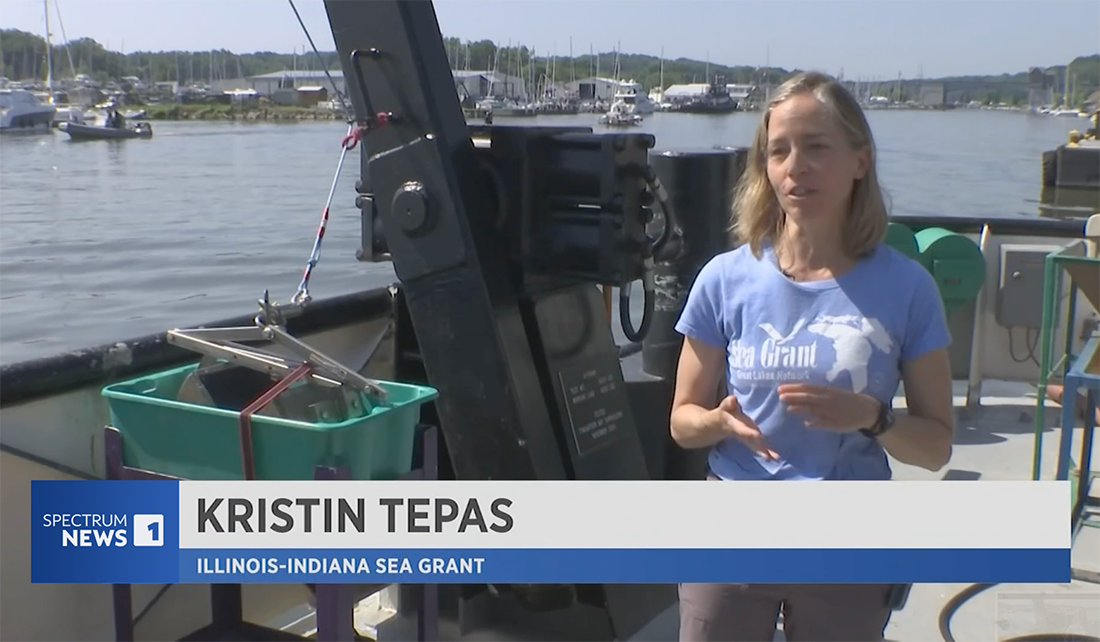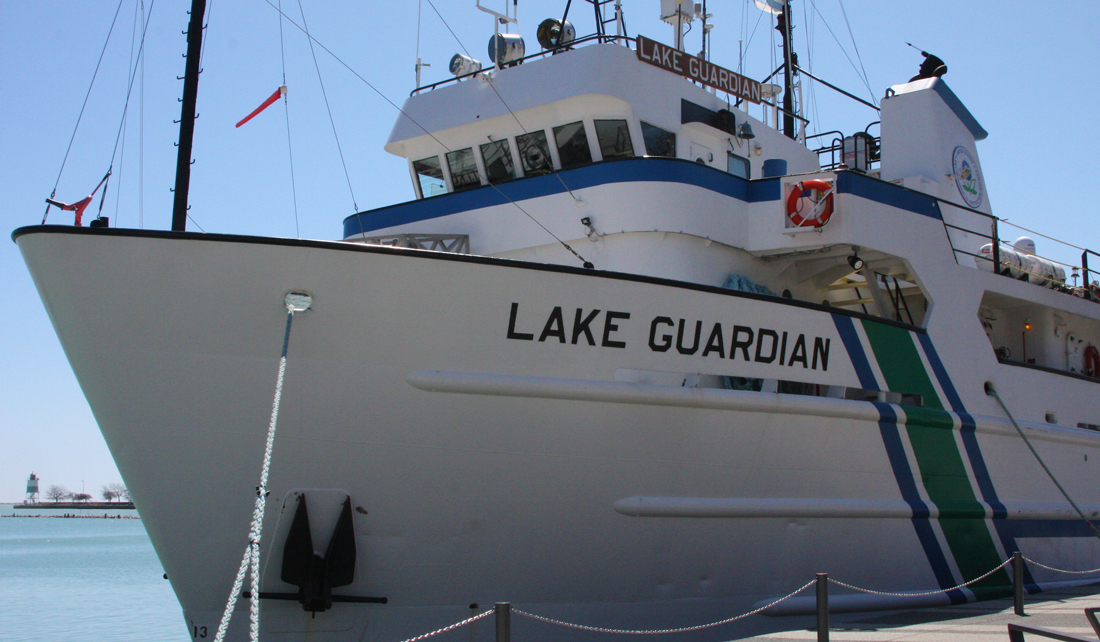
This summer, Lake Ontario was the site of an exciting experience for 15 teachers who spent a week on board an Environmental Protection Agency ship, testing water quality on the lake. Research that took place during this voyage may play an important role in the future health of not just Lake Ontario, but all the Great Lakes.
The Lake Guardian is a science ship owned by the EPA. Teachers from around the Great Lakes spent a week on board the research ship, taking water samples and collecting data.
During the Shipboard Science Workshop, teachers spent one week on the EPA research vessel, which goes out every spring and summer and does sampling across all five Great Lakes. One lake is featured every five years, on a rotating basis.

“I mean, they’re all interconnected,” said Kristin TePas, Illinois-Indiana Sea Grant Great Lakes outreach specialist. “It’s one big ecosystem.“
Data collected during the weeklong voyage will help determine policy, and could help scientists pinpoint at solve problems with water quality and issues like toxic algae blooms.
“I’ve heard from teachers that it’s like Space Camp for aquatic science teachers,” said TePas.
The research serves other purposes, too. Teachers will take what they learned and experienced on the ship back to their respective classrooms.
Read the full story on the Spectrum News 1 website.
Illinois-Indiana Sea Grant is a partnership between NOAA, University of Illinois Extension, and Purdue University Forestry and Natural Resources, bringing science together with communities for solutions that work. Sea Grant is a network of 34 science, education and outreach programs located in every coastal and Great Lakes state, Lake Champlain, Puerto Rico and Guam.

